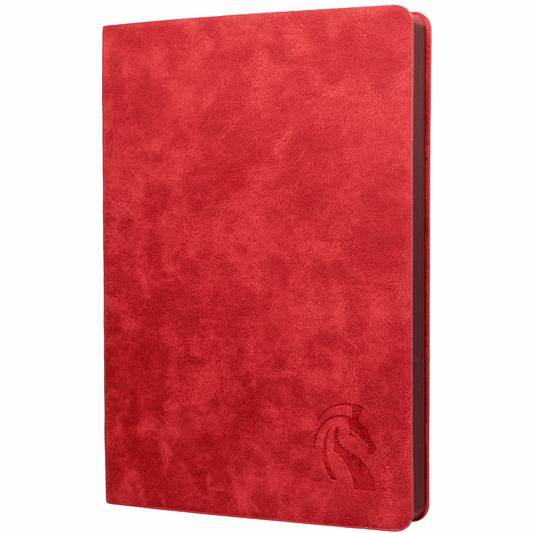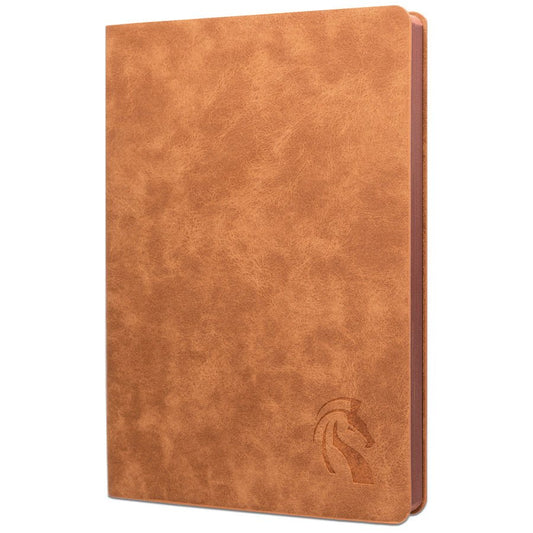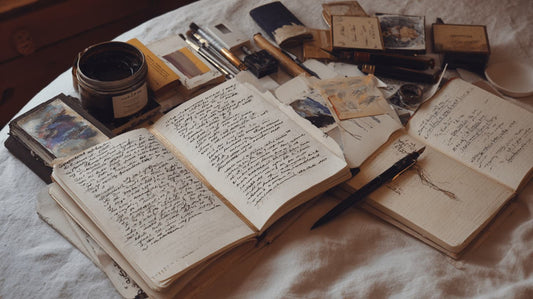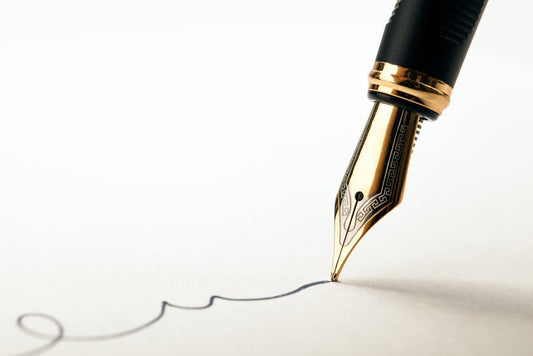
When you're just starting out as a journal writer, you probably care a lot about keeping your work private. If you are worried that a third party might get unauthorized access to your diary, you need to address this matter immediately.
There are many who gravitate to electronic journals because they offer the option to "hide" files and encrypt entries, satisfying a demand for secrecy. This works just fine as a compromise.
However, as I explain in another essay, keeping a physical notebook can have many advantages. Consider utilizing one of the aforementioned strategies for protecting your anonymity if you're at all apprehensive about attempting handwritten journaling.
Keeping a journal is a great way to give yourself a safe space to explore your emotions, unearth long-lost aspirations, release any lingering shame, test out some fresh ideas, and mend any wounds you may have. Self-editing and censorship are incompatible with these actions.
You're wasting your time and missing out on real growth if you modify your diary entries, withhold the truth, or write in a certain way out of fear of being discovered.
A Metric for Developmental Progress Based on Trust

The importance you place on privacy depends on where you are in your own personal growth right now. I've been picking my friends and family carefully for a while now, so I only have close ties with those I trust completely. My previous self-improvement effort has been on how to disentangle myself from toxic people in my life. Thus, I never have to stress about losing my journal.
Because I've requested them not to, the individuals in my life who know about my journal won't read it. My friends and family know that if I ever had a problem that involved them, I would tell them about it straight out. They have faith in my discretion and deeds, so they don't bother prying into my personal life to find evidence to back up their accusations.
However, this was not an instantaneous occurrence. There have been periods in my life when I had to live closely with someone I didn't trust. It was not uncommon for me to become deeply involved in a toxic relationship before realizing it was wrong. It was in my journal that I was able to work out my frustrations and formulate a strategy for getting out of there.
I didn't feel safe trusting my then-partner with these ideas and insights, so I didn't tell him. I was afraid he'd grab the journal from me and read it in the stall, then come out and accuse me of being emotionally unfaithful. To this end, I placed my journal in the tote I always had with me.
Knowing my correspondence was secure allowed me to vent my frustrations and plan ahead without inhibition. I was able to leave an unhealthy relationship and start a new chapter in my life because to the tools I gained through keeping a journal. The effect is that I haven't bothered to keep a secure location for my journals in the past decade.
Putting Your Own Safety First
Maybe you're in a difficult position that requires complete alone, like getting out of an abusive relationship. Writing in a journal can serve as an excellent outlet for both support and release. However, putting it on paper could backfire in an inflammatory circumstance.
Should I let my BF read my journal?
A digital journal protected by a strong password could be the best option if you're worried that writing in a physical journal could put you in danger or make an unstable situation worse. Secure yourself, and have faith in your own good sense.

1. As the saying goes, "out of sight, out of mind."
As an adult, my standard procedure has been to keep my most recent journal concealed in my purse. In most cases, prying eyes can be avoided if your journal is hidden. Like locking automobile doors, this is my way of preventing dishonest persons from entering.
In my opinion, the key to helping others succeed is to help them help themselves. If you make it too simple for your loved ones to pry into your life, they might. Humans are just that way. Put away your diary to show them you appreciate their respect for your trust.
2. Secret meanings revealed through metaphors
Previously, I would employ code terms and analogies that only I would understand, such as, "Despite my best intentions, I went shopping at Target again today." I'm at a loss as to which bedding option would be best. Should I choose for the tried-and-true flannel, or what? Or should I take a chance on the seductive satin sheets, which might be fun in the short term but would be a poor choice in the long run? " I think you get the picture.
Once I was no longer in a precarious situation that necessitated writing in code (such as when I moved out of my parents' house), I found it useful to go back and edit these entries, adding notation with a little "key" in case I forgot what I was talking about with regard to sheets at a time when I clearly had more pressing matters on my mind. A marginal remark can serve as a helpful reminder. ...and a chuckle while thinking back on it. “Sheets. Seriously? ”
Perhaps, like me, you and a friend had your own code when you were younger. Given the scarcity of quiet places to chat, my best friend and I often resorted to using a complex encryption to exchange phone messages.
This is something my mother also did with her sister. They both speak an unusual language that sounds a lot like pig latin. I don't know where it came from, but no one on Earth seems to be able to understand a word they're saying. They needed to establish a linguistic boundary because they lived in a confined, overcrowded house as children.
Your notebook might require a similar shield for the same reason. In order to write freely and without fear of repercussions, you should take whatever measures you deem necessary to ensure your safety and security.
3. Locks

You can take the Fort Knox approach and secure your files and books in a locked filing cabinet or bookcase. However, in a potentially dangerous circumstance, it's not a good idea to advertise this information. Keep your statements broad. Oh, yes, I just lock up all my important papers because you can never be too careful.
Teenage anguish can be expressed through the use of a locking diary with a little heart-shaped padlock. Not even Mead can ensure your anonymity, as those locks can be picked with a hairpin.
4. Safety Warnings
A large, conspicuous warning label might serve as a second line of defense, preventing dishonest individuals from entering. "You are going to break the trust of someone very dear to you. Is it really worth it if all you find is trivial nonsense? As a gentle reminder to would-be invaders of the risks they're taking.
Once upon a time, I used a hair and some invisible tape to keep my journals secure. Then, I placed a sticker on the cover letting the snoop know that the notebook was set up to reveal their incursion in the same way as a silent alarm would if they opened it. This strategy, which is equal parts melodrama and secret agent obsession, may have successfully kept my parents away.
5. Inauthentic Jackets
My first diary, started when I was in the third grade, was a three-subject notebook that had the word "HISTORY" emblazoned across the front in bold black Sharpie.
The choice of topic was an inside joke between me and myself; "history" is an apt description. However, it was designed to seem like my dull school notebook, which is probably loaded with tedious assignments and illegible notes on the French Revolution. No one worth their salt would look in there.
This subterfuge served a dual purpose; it allowed me to take meticulous notes in class while simultaneously fooling my professors. They thought my continual, frenetic scribbling was an attempt to record every brilliant thought that popped into their heads. If anything, my "star student" status was bolstered as a result of my diary writing in class, allowing me even more leeway from the teacher. But little did they realize...
Recently, I came across hardbound notebooks crafted from repurposed tomes such as vintage Nancy Drew volumes, botany guides, and philosophy textbooks. The first thing that sprang to mind was how useful they would be for journaling because they wouldn't draw much attention: "Oh this ancient thing?" Only my musty copy of seventeenth-century poetry.
Maybe you can do the same by writing about something less interesting in your journal.
6. Conversations

I told my roommate/partner about the notebooks when we initially started living together. I also told him I would be honest with him about anything that would cause him concern. There was no reason for him to look for it.
I just stated, "They are private, but I am not hiding them." Additionally, I take no responsibility for your actions should you choose to read them. Don't come whining to me if you happen to see anything that wasn't meant for you to see.
The major risk comes from the technique I term "Alternate Realities," which I employ when I can't decide between two possibilities and pretend to write as though I have. This mental workout has helped me picture how I would feel if I actually did something.
As an illustration, if I truly despise my job, I will act as if I have already made up my mind to resign. Then, I use that viewpoint in my writing. I know I'm not ready to quit my work if I read about my financial worries in my journal. Perhaps if I describe the heady sense of liberation and relief that came over me all at once, I will be on the right track.
But think of the trouble this could bring if, for instance, my partner stumbled onto a virtual reality simulation and failed to recognize it for what it was. That's what I mean when I say you shouldn't feel responsibility if someone else reads a journal that wasn't intended for them. They don't know what the words on that page mean. They can't tell if what they're reading in your notebook is fact or fiction, the description of a terrifying nightmare, the plot of a brand new novel, or you just playing devil's advocate.
Your loved ones and roommates should respect your need for solitude.
7. Boredom
Most of what I write would drive a snoop to distraction in a matter of minutes. Because I keep a daily notebook, the juicy details are few and far between. Anyone who betrays my confidence will likely be let down when they realize their actions were pointless.
Finally, your worries about privacy can shed light on any underlying trust issues. You should ask yourself if you want to live your life with someone you can't believe won't cross your boundaries. Some of these methods may be useful if the switch has already been flipped and you're trying to escape a low-trust scenario.
You must take stock of your circumstances and take appropriate precautions. You must protect your journal so that you can write freely and without fear of reprisal. It's only fair that you make the most of your writing time.

LeStallion PU Leather Journals
LeStallion Soft Cover PU Leather Journals inspires and excites you to write more, allow you to further grow and develop, so you may achieve your goals and dreams!
SHOP LESTALLION













